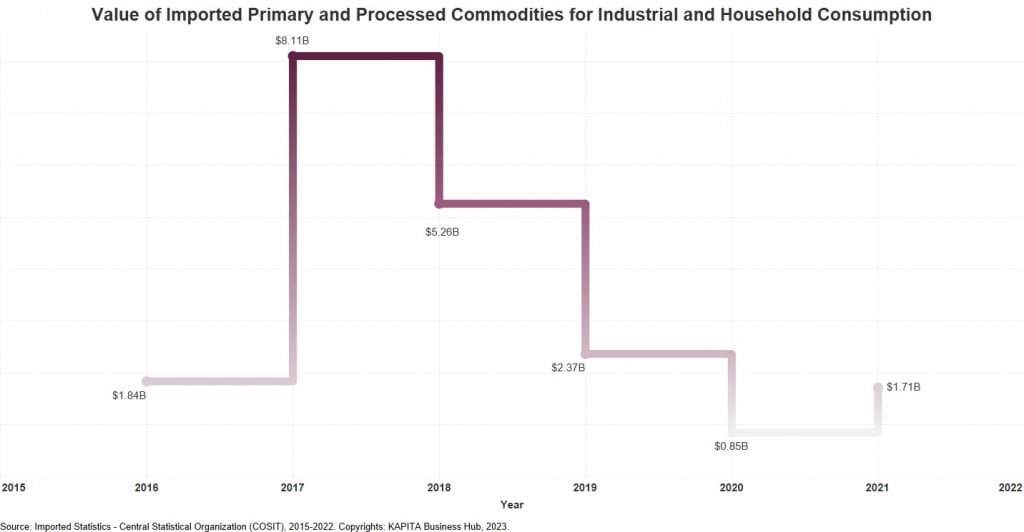Iraq FMCG Consumer Market Analysis: Key Growth Drivers and Challenges
The Iraqi Fast-Moving Consumer Goods (FMCG) sector presents a unique landscape characterized by a heavy reliance on imports and a nascent yet promising manufacturing sector. With the total importation value reaching $1.7 billion in 2021, the market’s dynamics are shaped by a blend of external dependencies and internal challenges. This Iraq FMCG consumer market analysis delves into the distinctive traits of Iraq’s FMCG consumer market, exploring the key drivers of growth and the challenges that lie ahead.
The Predominance of Imports in Iraq’s FMCG Sector
The Iraqi market is heavily dependent on imports to meet consumer demand, especially in the food, beverage, and dairy product segments. The significant reliance on imports underscores the current limitations of domestic production and the critical role international suppliers play in sustaining the local market. Processed foods, dairy products, and beverages are among the top categories of imported goods, with considerable quantities sourced from neighboring countries and beyond. This reliance on imports highlights a crucial challenge for the national manufacturing sector: the need to bolster local production capabilities to reduce dependency on foreign goods—a key point in any thorough Iraq FMCG consumer market analysis.

Challenges in Domestic Manufacturing
Iraq’s domestic FMCG manufacturing sector, particularly in the food and beverage industry, faces numerous hurdles. The absence of robust legal frameworks, such as the Products Protection Act and Consumer Protection Act, has created a challenging environment for local manufacturers. Without these protections, the growth of Iraq’s private sector is stifled, with international imports continuing to dominate the market. Furthermore, traditional manual processes still prevalent in local dairy production signify an urgent need for modernization and investment in new technologies to enhance productivity and competitiveness. These factors are critical in understanding the broader Iraq FMCG consumer market analysis.
Opportunities for Growth and Development
Despite the challenges, there are several opportunities for growth within Iraq’s FMCG market. The shift from traditional retail outlets to chain markets and hypermarkets represents a significant evolution in consumer behavior. These modern retail formats offer a wider range of products and a more convenient shopping experience, attracting a growing number of Iraqi consumers. Additionally, the rise of technology and online tools in Iraqi-based startups and SMEs presents a promising avenue for promoting locally produced goods. By leveraging these technologies, local producers can better compete with imported goods and capture a larger share of the domestic market.
The Future of Iraq’s FMCG Sector
Looking ahead, the future of Iraq’s FMCG sector hinges on overcoming the existing challenges and capitalizing on growth opportunities. Key to this will be the implementation of supportive legal frameworks that protect and promote local manufacturing. Moreover, investment in modernizing production processes, particularly in the dairy sector, will be essential for enhancing the competitiveness of Iraqi-made products. As consumer preferences continue to shift towards modern retail formats and locally produced goods, the potential for growth in Iraq’s FMCG sector remains substantial.
In conclusion, this Iraq FMCG consumer market analysis reveals a market defined by a heavy reliance on imports and a challenging manufacturing environment, yet with clear pathways to growth. By addressing these challenges and fostering the development of domestic production, Iraq can create a more self-sufficient and vibrant FMCG sector.

